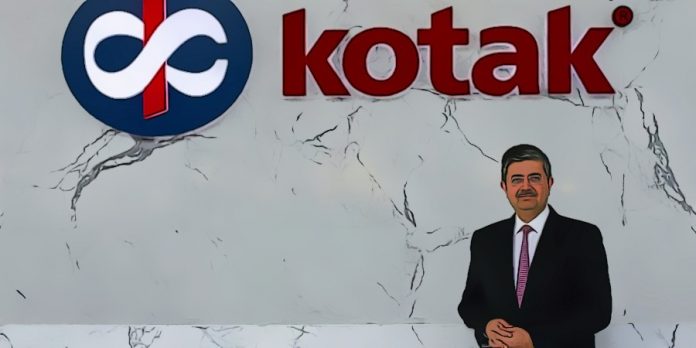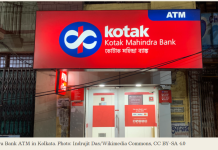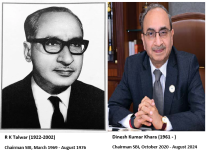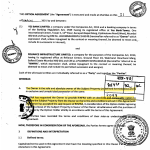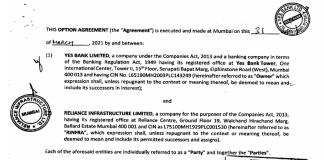In response to the Reserve Bank of India’s (RBI) directive to Yes Bank to replace the present CEO-promoter Rana Kapoor by January 31, 2019, the bank’s share price fell a stunning 29% on September 21, and Rs 20,937 crores of market capitalisation went up in smoke.
The RBI’s directive is a lesson to investors regarding the inherent risk of promoter-CEOs.
Following a board meeting on September 25, Yes Bank’s directors pleaded to the regulator to grant an extension to Kapoor up to September 2019 “for finalisation of audited financial statements for fiscal year ending March 2019 and in order for the statutory AGM process to be completed”. This reveals the complete neglect of leadership succession and the one-man dependence in Yes Bank.
According to an ET Now story, citing anonymous sources, the RBI cited three main reasons for cutting short Rana Kapoor’s tenure, “Weak compliance culture in Yes Bank”, “weak governance and wrong asset qualification.”
The broader issue it raises for public and shareholder interests is the separation of ownership from management in private sector banks in India, and specifically Uday Kotak from the management of Kotak Mahindra Bank (KMB). In the case of Yes Bank and KMB, the RBI unfortunately succumbed to not segregating ownership from management, and permitted the promoters to be CEOs. This in both banks strengthened the promoter’s domination of the board of directors.
The RBI had laid down norms in 2013 requiring promoters of private banks to reduce their holdings to 15% within 12 years of the start of operations. Indeed, a Yes Bank Placement Document dated June 3, 2014, to prospective investors stated:
“We are currently not in compliance with RBI’s direction to reduce shareholding of the promoter and promoter group in the Bank. The RBI had directed the Bank to reduce shareholding of the promoter and promoter group to 10% of the paid up share capital of the Bank by 31 March 2014.”
In Yes Bank, which received its banking license at the same time as KMB, the promoters’ stake was brought down to 20% by March 31, 2017, and has remained at that level as the promoters are contesting certain issues in court. In IndusInd Bank, which was established in 1994, the promoters reduced their stake to 15% (page 38 of the annual report) by March 31, 2016. In contrast, the promoters’ shareholding in KMB was 30% as on June 30, 2018.
In the case of KMB, the RBI made a special dispensation to Uday Kotak, providing him with a lengthy time frame to reduce his shareholding in a staggered manner to 20% by December 31, 2018, and finally to 15% by March 31, 2020. This relaxation was not given to similar banks like Yes Bank and IndusInd Bank. The RBI has never explained to the public why Uday Kotak was given such differential treatment. By this single relaxation, the promoters of KMB (essentially Uday Kotak) enjoyed a notional gain of a staggering Rs 15,609 crores as on June 30, 2018, which was denied to the non-promoter shareholders of KMB.
Not satisfied with the largesse gifted to him by the banking regulator, Uday Kotak wanted to maintain the promoters’ 30% holding for posterity, and the bank on August 2, 2018, issued Rs 500 crores as preference shares (debt instrument with no equity ownership) to be included in “paid-up capital” of the bank. The KMB board stated to the exchanges, “Post this issuance of PNCPS, promoter holding is 19.70% of the paid-up capital. This meets the RBI’s communications in this behalf for December 31, 2018.”
The KMB board consists of nine directors, of whom two are whole-time, two are non-independent, non-executive, and the remaining five are independent. Despite independent directors being in the majority, the board was willing to clearly bypass a critical RBI regulation pertaining to ownership stake to benefit the main promoter, who was also the CEO. Such an endorsement by the board reveals its lack of independence, and its inability to restrain a CEO whose power emanates from being the largest shareholder and promoter.
It was obvious to all the banks and the capital market that RBI’s terminology of “paid-up capital” implied only equity capital and not preference shares. It was, therefore, no surprise when the RBI on August 14, 2018, stated, “the bank’s issuance of perpetual non-convertible preference shares did not meet the promoter holding dilution requirement”. Instead of being apologetic as the RBI had overruled its decision, the board of KMB defiantly stated, “We continue to believe that we have met the requirement and will engage with the RBI in this behalf.”
To further rub salt into the wound, Uday Kotak, in an interaction with the Mint newspaper on August 24, 2018, stated that the KMB board may even consider legal options against the RBI.
“I ask Kotak the obvious question: What is his next course of action? Without showing any sign of stress, he says the bank continues to believe that it has met the RBI’s requirement and will engage with the regulator. Since, unlike the capital market regulator, India’s banking regulator does not have any appellate body, I ask him whether he will explore legal options. Kotak says it is for the bank’s board to decide (on this).”
Such defiance by a bank is unprecedented. Not only does the bank believe it can influence the regulator to provide it with an extended time line not given to other banks, but that it can publicly humiliate the regulator when the latter negates KMB’s proposal without fearing any censure.
Uday Kotak’s bravado may be on account of his close association with RBI governors, Urjit Patel and his predecessor Raghuram Rajan. In April 2016, Raghuram Rajan, as RBI governor, delivered the inaugural Kotak Family Distinguished Lecture on ‘India in the Global Economy’ at Columbia University. A year later, Urjit Patel, as RBI governor, presented the ‘Third Kotak Family Distinguished Lecture’ on April 24 at the same venue. It is highly unusual for a banking regulator, that too its governor to be publicly associated with a private event of a bank promoter directly under its supervision, but it did not seem to concern these governors.
Despite Uday Kotak’s influence, KMB’s disdain for the regulator may be short-lived. Urjit Patel, smarting from the universal condemnation of the demonetisation disaster, is apparently displaying signs of independence and is adopting a tough stance towards private sector banks. The forced departures of Shikha Sharma at Axis Bank and Rana Kapoor at Yes Bank are promising signs that the RBI is getting tough with serial misreporters.
It is absolutely necessary for the RBI’s credibility as a banking supervisor to censure KMB for its attempted circumvention of a critical RBI regulation pertaining to ownership and for the bank’s cavalier attitude even after the RBI’s decision (to the point of contemplating legal action against the regulator).
The calamitous fall in Yes Bank’s share price blind-sided investors, as they had falsely believed Rana Kapoor would continue as CEO indefinitely. Now the bank has been caught unprepared in a leadership crisis. (Even so, Yes Bank’s shareholders continue to cling on to their faith in Kapoor, as evidenced by the rally in the bank’s share price on September 26, following the board’s plea for an extension for the CEO.)
KMB is similarly identified with Uday Kotak, and, given the manner in which the bank has treated the regulator, investors should exercise caution on the future of such leadership. The RBI has flexed its muscles and removed a powerful promoter from the post of CEO in Yes Bank. Is it not time for the regulator to reconsider whether Uday Kotak is fit to wear the dual hats of promoter and CEO in KMB?

